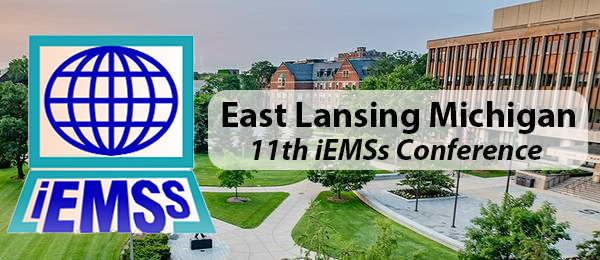Keywords
Irrigation management; Ant colony optimisation; Crop patterns
Start Date
5-7-2022 12:00 PM
End Date
8-7-2022 9:59 AM
Abstract
Irrigation is vital for food production in many parts of the world, particularly in dry areas or in periods of water scarcity. However, with growing water demands due to population growth, economic development and climate change, there is likely to be a significant reduction in the amount of water available for irrigation. This challenges how to manage the available irrigation water in the most effective way. The feasible solutions of this problem are (i) the optimal allocation of land and water resources for irrigation management to maximise net return, subject to constraints on area and water allocation and (ii) the optimal scheduling of the available water, as well as fertilizer, in order to maximise net return. This paper demonstrates how ant colony optimisation can be used to address both of these problems via two case studies, namely: (1) optimal crop selection and irrigation water allocation in an irrigation district in South Australia; and (2) optimal irrigation and fertilizer scheduling at the farm scale considering corn production in Colorado, USA. Results indicate that ant colony optimisation can be used successfully to identify the crop mix that maximises net return for a given water allocation and to identify irrigation and fertiliser schedules that maximise net return under different water constraints. This highlights the potential for using this approach to adapt to changed future conditions.
Optimal management of irrigation water using ant colony optimisation
Irrigation is vital for food production in many parts of the world, particularly in dry areas or in periods of water scarcity. However, with growing water demands due to population growth, economic development and climate change, there is likely to be a significant reduction in the amount of water available for irrigation. This challenges how to manage the available irrigation water in the most effective way. The feasible solutions of this problem are (i) the optimal allocation of land and water resources for irrigation management to maximise net return, subject to constraints on area and water allocation and (ii) the optimal scheduling of the available water, as well as fertilizer, in order to maximise net return. This paper demonstrates how ant colony optimisation can be used to address both of these problems via two case studies, namely: (1) optimal crop selection and irrigation water allocation in an irrigation district in South Australia; and (2) optimal irrigation and fertilizer scheduling at the farm scale considering corn production in Colorado, USA. Results indicate that ant colony optimisation can be used successfully to identify the crop mix that maximises net return for a given water allocation and to identify irrigation and fertiliser schedules that maximise net return under different water constraints. This highlights the potential for using this approach to adapt to changed future conditions.



Stream and Session
false